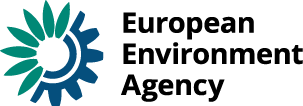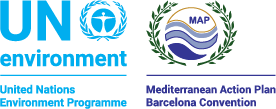Two days workshop to refine the review mechanism of the Horizon 2020 initiative for a cleaner Mediterranean and its associated H2020 indicators, Copenhagen, 17-18 May 2017
Organised by the ENI SEIS II South Support Mechanism, participants from different Mediterranean neighbourhood countries, ENI SEIS II South Focal Points from statistics institutes and Ministry of environment, representatives from UN environment/Mediterranean Action Plan, Plan Bleu and the Centre for Environment and Development for the Arab Region and Europe (CEDARE) met in Copenhagen on 17 and 18 May 2017 for the first ENI SEIS II South Support Mechanism regional workshop on indicators.
The workshop aimed to refine the Horizon 2020 review mechanism to take into account other assessment processes such as the Mediterranean Quality Status Report (QSR 2017), the State of Environment and Development Report (SoED 2019), and the Mediterranean Strategy on Sustainable Development (MSSD) and further develop the current H2020 set of indicators to reflect the renewed scope of the H2020 priorities applicable to all Mediterranean countries, in coherence with other existing indicators sets e.g. Mediterranean Pollution Assessment and Control Programme MEDPOL/NAPs indicators, Integrated Monitoring and Assessment Programme (IMAP) common indicators, and Sustainable Development Goals (SDGs).
Organised over breakout sessions addressing the H2020 priority thematic areas (water, waste and industrial emissions) as well as other areas of relevance, participants reviewed existing sets of indicators (H2020, NAPs, IMAP, MSSD, SDGs, League of Arab States indicators, etc.) and discussed adjustments, updates and additions to the current H2020 indicator set to be used for the 2019 H2020 review process. Participants reflected on a potential coherent information flow (Monitoring – Data – Indicators) which could be adjusted to countries' situations and support regular review process (H2020 and beyond) and the setting-up of integrated information systems. The quality, availability and accessibility of the data remain the primary concerns.
The Information and Communication Regional Activity Centre (Info RAC) presented the new developments on the regional information system to be used for reporting data and information and to support the production of the H2020 indicators. An online survey on metadata will take place in the coming period to gather information on the state of national data sets and data management infrastructure.
The meeting agreed on the following next steps:
- Refine the outcomes of the workshop by September with a proposal of an extended H2020 indicator set;
- hold a webinar on 19 September 2017 to finalise the list of indicators and corresponding specification, and agree on the outline of the 2019 H2020 indicator-based assessment,
- by October to initiate and test indicator production;
- to held early 2018 a regional workshop to review and analyse the indicator produced.
For more information see here


